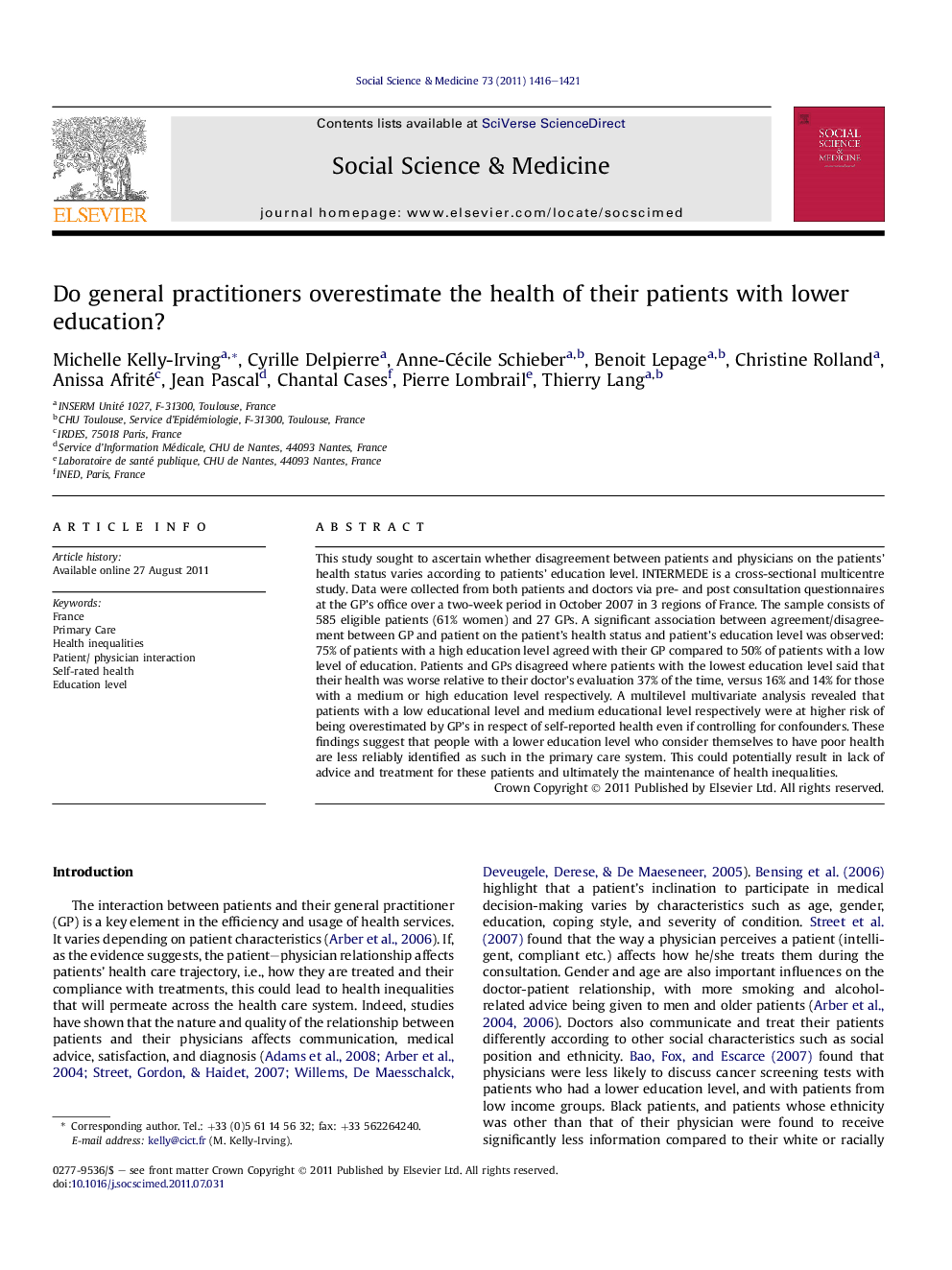| کد مقاله | کد نشریه | سال انتشار | مقاله انگلیسی | نسخه تمام متن |
|---|---|---|---|---|
| 952803 | 927540 | 2011 | 6 صفحه PDF | دانلود رایگان |

This study sought to ascertain whether disagreement between patients and physicians on the patients’ health status varies according to patients’ education level. INTERMEDE is a cross-sectional multicentre study. Data were collected from both patients and doctors via pre- and post consultation questionnaires at the GP’s office over a two-week period in October 2007 in 3 regions of France. The sample consists of 585 eligible patients (61% women) and 27 GPs. A significant association between agreement/disagreement between GP and patient on the patient’s health status and patient’s education level was observed: 75% of patients with a high education level agreed with their GP compared to 50% of patients with a low level of education. Patients and GPs disagreed where patients with the lowest education level said that their health was worse relative to their doctor’s evaluation 37% of the time, versus 16% and 14% for those with a medium or high education level respectively. A multilevel multivariate analysis revealed that patients with a low educational level and medium educational level respectively were at higher risk of being overestimated by GP’s in respect of self-reported health even if controlling for confounders. These findings suggest that people with a lower education level who consider themselves to have poor health are less reliably identified as such in the primary care system. This could potentially result in lack of advice and treatment for these patients and ultimately the maintenance of health inequalities.
► Little is known about the impact of the patient/GP interaction during consultation on health inequalities.
► Evidence suggests that advice, treatment and follow-up in primary care vary depending on patients’ social characteristics.
► Our study highlights disagreement between French patients and their GPs on the patient’s overall health status.
► GPs evaluated patients’ health more positively relative to the patient’s evaluation, when they had a low level of education.
► This could result in lack of advice and treatment for these patients and ultimately the maintenance of health inequalities.
Journal: Social Science & Medicine - Volume 73, Issue 9, November 2011, Pages 1416–1421